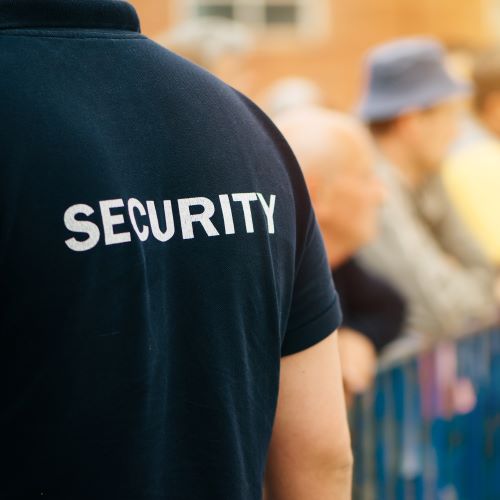Information on Cookies
To make the best use of our website, you'll need to make sure your web browser is set to accept cookies to ensure you receive the best experience.
For further information, please read our Cookies Policy.

Log In

The Hon Sir John Saunders, Chairman of the Manchester Arena Inquiry has published Volume One of his report into the death of the 22 victims of the attack on 22nd May 2017. The report, Volume 1: Security for the Arena is the first of three and examines the security arrangements in place at the Manchester Arena.
The inquiry follows the suicide bomb attack by Salman Abed on 22nd May 2017, when twenty‑two innocent people were murdered in Manchester at the end of a concert performed by Ariana Grande. In addition, hundreds were injured.
The Chairman made a short statement at 2pm on the 17th June 2021 at the Manchester Magistrates’ Court. You can watch this broadcast via the Inquiry YouTube channel here. A copy of the Chairman’s statement is available here.
The report contains content that some may find distressing.
The Inquiry reports will comprise three volumes in total:
- Volume 1 addresses the security arrangements at the Ariana Grande concert.
The report identifies the missed opportunities for detecting and stopping the attack or reducing the harm caused. The report is being published now to enable early consideration of the recommendations and in light of the Government's consultation on the proposed ‘Protect Duty’.
- Volume 2 will deal with the emergency response to the Attack.
- Volume 3 will consider whether the Security Service and Counter Terrorism Police could and should have prevented the Attack.
Volume 1 of the report states:
'...The responsibility for the events of 22nd May 2017 lies with Salman and Hashem Abedi, his younger brother. ...I have had in mind while writing this Report, as everyone who reads it should, that responsibility rests with them. This volume of my Report and those which follow must nonetheless examine the actions of others. I must decide whether more could and should have been done to stop SA detonating his bomb on 22nd May and to respond to the detonation when it occurred...'
The report
The report runs to over 200 pages, and includes 8 parts which are listed below, together with some of the key findings (please refer to the report for the fully findings and background information):
Part 1 Missed opportunities – the report sets out a number of missed opportunities by organisations and individuals to identify and act on the risk posed by
The report concludes in part 1 of volume 1 that 'The security arrangements for the Manchester Arena (the Arena) should have prevented or minimised the devastating impact of the Attack. They failed to do so', and cites a number of missed opportunities both by organisations responsible for security of the event and by some individuals on the night on 22nd May 2017 and beforehand.
Part 2 Manchester Arena
This part of the report looks at the Arena capacity and layout, and the key organisations involved in the management of the venue and of the event.
Part 3 Statutory context
The report contemplates the regulatory regimes for health & safety, licensing regime and provision of security. The report findings included:
- The licensing process did not consider the risk of a terrorist attack in deciding to grant a new licence or considering conditions for the licence.
- There was no consultation with expert counter-terrorism police officers when considering the application and/or conditions.
- The licensing enforcement regime failed to identify possible breaches of the licence which may have contributed to the failure to prevent the attack.
- The SIA enforcement regime failed to identify a long-standing practice in the use of unlicensed stewards to search bags and monitor CCTV.
Part 4 The Counter Terrorism Security Advisor
Among the key findings of this section is the conclusion that the ‘…voluntary nature of the CTSA system and the lack of any specific duty to identify and mitigate the risk of terrorism means that system is inadequate to provide a proper level of protection to the public…’
Part 5 SMG and expert counter‑terrorism input
The report found that there was insufficient expert security and counter-terrorism input within the event management company at the time of the attack.
Part 6 SMG and Showsec: terrorism threat mitigation measures
The report identifies significant failings in relation to counter-terrorism risk assessments, use of licensed staff for CCTV monitoring, and training.
The report states that an effective risk assessment process at the Arena would have identified deficiencies in the security arrangements including: the approach to CCTV; moving the security perimeter; the importance of patrolling in the City Room during events by Showsec; and, the breakdown in communication between SMG and Showsec in relation to the pre‑egress check. The event specific risk assessment for the Ariana Grande event failed to identify the threat from terrorism as a potential hazard.
Part 7 Policing of the City Room
Policing deployment was found to have failed to take account of the terrorism threat, and there were additional failings identified, including compliance with policing plans and instructions, lack of experienced supervision and general complacency.
Part 8 Volume 1: conclusions and recommendations
The report makes a number of conclusions and recommendations, including recommendations on guarding against complacency, extensive recommendations about the Protect Duty (currently under Government consultation), and further recommendations on training.
The Institute of Licensing were able, alongside Jeremy Phillips QC to assist the Inquiry in relation to matters relating to the Licensing Act 2003. The report states ‘…They helped considerably those participating in the Inquiry in understanding how the Act was capable of being relevant to the terms of reference of the Inquiry and how in practice Licensing Committees took the possibility of terrorist attacks into consideration when making their decisions…’
